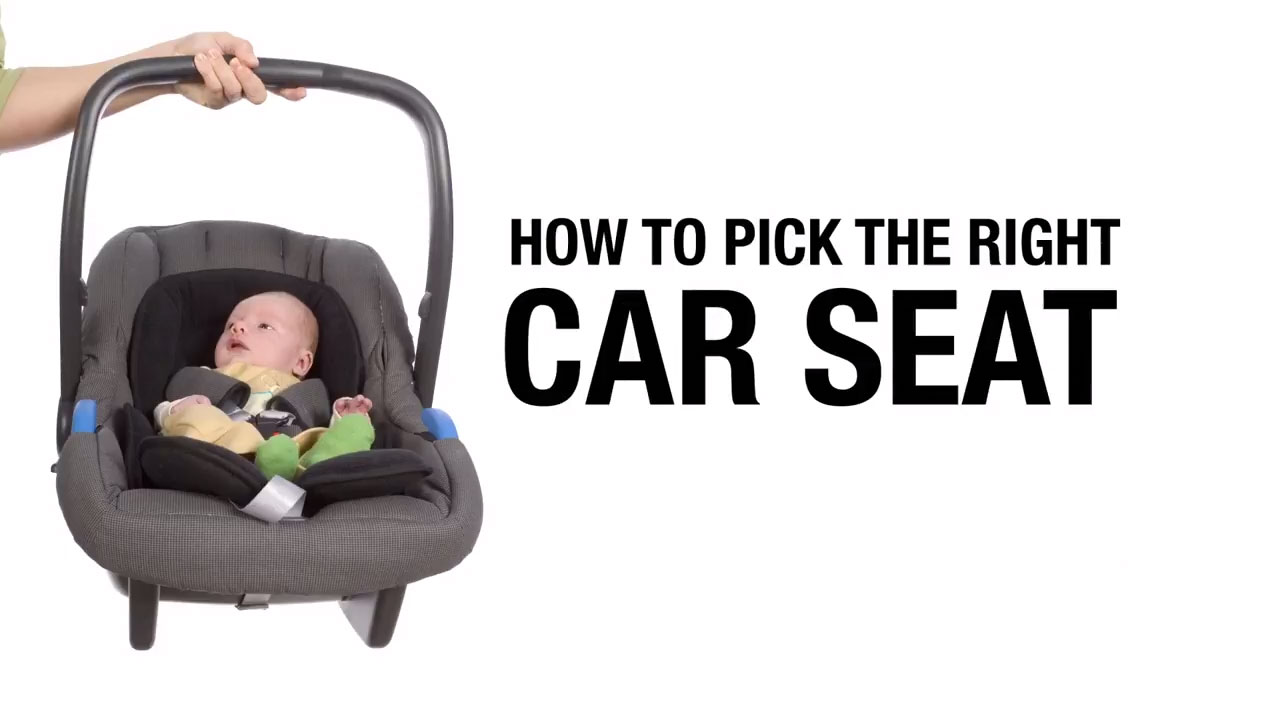How to pick the right car seat
- Each car seat has to meet the same federal safety standards in order to be able to be marketed in the United States. So you need to check and make sure that it's going to fit securely in your car, it's a seat that you will use consistently every time you place your child in a car, and does it have the features that you want? Many of them have different features.
- The best place for parents to do some research on which car seat to purchase, and all the features and everything that they are looking for, besides the manufacturer's websites that they can check, would be the National Highway Traffic Safety Administration website. They're currently putting together a list of which vehicles fit which car seats the best. So that's a really good, safe resource, and not skewed to any particular place on what seat is gonna fit your car the best.
- We recommend that you never purchase a used car seat because you don't know the history behind it. You don't know if it's been involved in an accident, and if it has been involved in an accident, then that would render it unsafe to use in a car. If it is your car seat and you're involved in a car accident you need to notify your insurance company and they will replace that car seat right away for you.
- The difference in the infant convertible and booster seats are the, basically, three stages of your child's life in a car seat. Infant seats are anywhere from four pounds to 22 to 35 pounds, depending on the manufacturer. When they outgrow that, they go to a convertible, which is rear-facing, to 40 or 35 pounds, depending on the manufacturer. And then it turns, the same seat turns forward-facing until it's 65 or 70 pounds, again depending on the manufacturer. Then they move into a high-back booster with a harness, which is our preference for safety, until they're four feet nine inches tall.
- Most parents aren't aware that their car seat actually has an expiration date. And that expiration date is listed in the hard plastic shell on your car seat. And typically with an infant car seat, it's good for five years, five to six years, depending on the maker. And you'd check that just to make sure. So it's generally good for two children. With the bigger seats, the convertible seats, those last seven to eight years, and you just need to check and make sure that your car seat hasn't expired.
- A lot of parents wonder if more expensive car seats are better than the cheaper ones. But the reality is that every single car seat that's being sold in the United States has passed the exact same crash test standards. So whether you're buying a $40 car seat or a $400 car seat, they're both going to be safe for your child. That said, some of the more expensive car seats do have additional add-ons and features that you might enjoy more, and that's why they're charging a premium. Whether it's for the prints and the fabrics, and the appearance of the car seat to match your vehicle, or your child's gender, or because you want that extra cup holder. Or maybe you want some of the extra safety features that are add-ons, like the side impact protection that some new car seats are offering. But at the end of the day, whatever budget you're on, any car seat you buy at any retail store is going to be safe for your child.
Police Officer Suzie Kim, Car Seat Specialist Cynthia Crothers, and Founder of CleanBeeBaby, Jennifer Beall, review how to choose the right car seat for you and your baby




 GET ACCESS TO ALL PREMIUM CONTENT WITH NO ADS FOR $4.99/MONTH
GET ACCESS TO ALL PREMIUM CONTENT WITH NO ADS FOR $4.99/MONTH
Login or Register to view and post comments